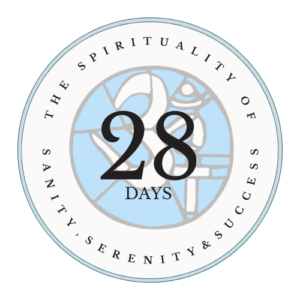Far too often in the religious world of my youth, God was presented as a frightening and punitive figure. The damage caused by this mis-representation of the Divine continues to poison the hearts of many people. Over the past three or four decades, however, God has been increasingly presented as the very essence of goodness, mercy, and love. While this corrective has been true and healing, it has contributed to a certain distortion in much of our society in that our sense of right and wrong has been watered down. Still deeper, we have lost the wisdom that teaches that there are consequences to our behaviors, that karma is real, and that we reap what we sow. Yes, God is absolute love, but we often forget that justice is an essential aspect of love. With these ideas in mind, let us turn to today’s Gospel, Luke 13:1-9, which includes a powerful parable from Jesus:
Jesus told them this parable: There once was a person who had a fig tree planted in his orchard, and when he came in search of fruit on it but found none, he said to the gardener, “For three years now I have come in search of fruit on this fig tree but have found none. So cut it down. Why should it exhaust the soil?” The gardener replied, “Sir, leave it for this year also, and I shall cultivate the ground around it and fertilize it; it may bear fruit in the future. If not, you can cut it down.”
What is the point of Jesus’ parable? The fig tree was either going to produce fruit or not. Likewise, everything we do tilts our hearts and the world toward light or darkness. Let’s be clear: God does not punish us for our sins; we punish ourselves. I am not trying to induce guilt but rather attempting to express a sobering truth we all need to hear. As human beings, we have been created in the very image of God and are powerfully creative. In thought, word, and deed, we are either creating or mis-creating. Neutrality does not exist.
If the world is going to pull back from the brink of disaster, be it war, environmental degradation, materialism, or racial disharmony, we have to cultivate God-Consciousness. This means we must pray and meditate, and it implies that we must find our happiness and security not in the accumulation of power, pleasure, or prestige, but in the cultivation of truth, beauty, and goodness. Living from a state of God- Consciousness means that love is the source and substance of our lives. Love is the energy that directs our lives, time, finances, politics, sexuality, diet, our everything. Yogananda tells us, “Karma is the law of action based upon the law of cause and effect. All of your actions, whether good or bad, have a specific effect upon your life. Karma teaches that as one sows, so must he inevitably reap. Good actions will produce a good effect on your life, while bad actions will produce a bad effect.”
The law of action, or karma, is not fatalism. It is not God punishing you or rewarding you based on your actions. Either you are punishing yourself through evil actions or freeing yourself through right actions, especially actions attuned to the will of God. To be tempted is natural, but freedom lies in being able to overcome temptation, for then you are guided only by free will and free choice. All effects or seeds of your past actions (karma) can be destroyed by roasting them in the fire of concentration, meditation, the light of superconsciousness, and by taking right actions—actions free from the selfish desire for the fruit of action.
Beloved,
Help me to remember:
Everything I think, say, and do
Tilts my heart and this world
Toward light or darkness.






